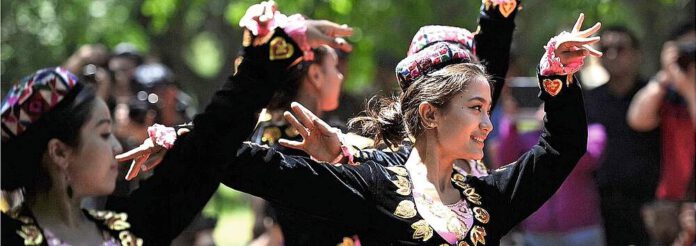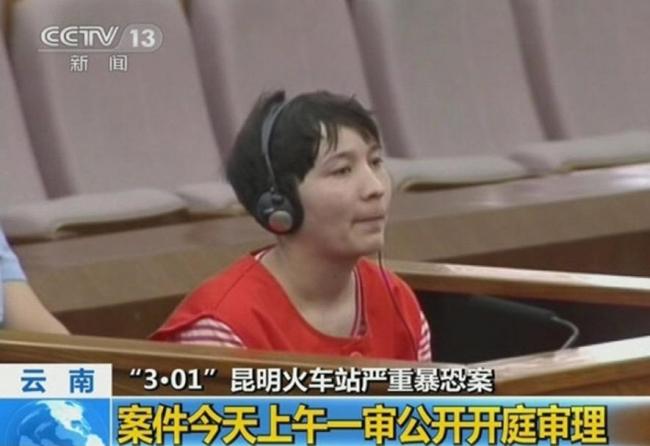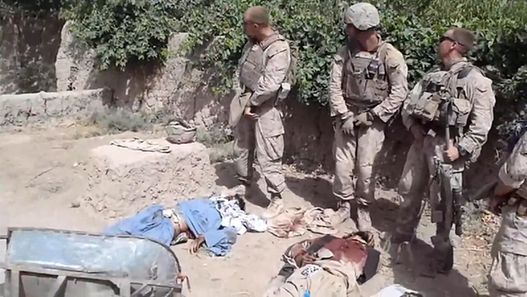
The fate of the Uyghurs is stirring up the West. Beijing is pilloried for coercive measures. The fact that Uyghur terrorists have been challenging the Chinese state for 30 years is largely ignored. Who are the people who are currently the talk of the town?
Kunming, Yunan Province, China: on 1 March 2014, a normal Saturday evening, seven Uyghur men and a pregnant woman, all dressed in black, appeared in the ticketing hall of Kunming Station. They drew long bladed knives and set about stabbing men, women and children. Within ten minutes 31 people were dead and 130 wounded.

Impressively, in ten minutes a Chinese SWAT team arrived and shot and killed four of the Uyghur terrorists. One wounded woman was taken to hospital and three other Uyghur men were arrested. They would be found guilty and executed. The pregnant woman was sentenced to life imprisonment. The Kunming Massacre was China’s 9/11 moment.
As in America, hindsight showed that the Kunming Massacre was the culmination of a fundamentalist Islamist trend evident from the early 1990s. In the Uighur homeland of Xinjian, the arrival of a more radical Islam had become increasingly apparent through the visible signs of long male beards and an increased wearing of the burqa.
A first terrorist bombing in Urumqi in February 1992 killed three people. Five years later, after the execution of 30 suspected separatists, an attack on buses in the same city killed three children. Civil unrest and dozens of minor terrorist episodes followed. They were interspersed with larger and more notorious events.
Jihadist Uyghur activity was inspired by Al Qaeda’s 9/11 attack and Taliban atrocities in Pakistan and Afghanistan. Uyghur terrorists trained in their camps. Furthermore, a Chinese crackdown on Uyghur extremism alienated a population that was becoming increasingly hostile to Chinese Han immigration from the east, economic growth and the perceived diminution of their culture. Before the Beijing Olympics in 2008, two Uyghur men killed sixteen people in Kashgar.
In 2010 a suicide bomber exploded a three-wheel vehicle in a crowd of police killing seven in the city of Aksu, which lies close to Kyrgyzstan’s border. The following year a gang of 18 young Uyghurs, protesting Hotan city authority’s crackdown on the burqa, captured a police station and held hostages. In the same year more vehicle and knife attacks took place in Kashgar. On 30th April 2014, coinciding with a visit to Xinjian by Xi Jinping, a bomb and knife attack in Urumqi killed three and injured 79 others.
The causes of Uyghur unrest were as much about cultural identity as Muslim radicalism. Uyghur academics overseas claim that their link to Xinjian goes back 6,000 years. By contrast China claims the Uyghurs only came to the area after the collapse of the Uyghur Khanate in the 9th Century when they pushed out the Han. What is certain however is that Uyghurs had converted to Islam by the end of the 10th Century.
Xinjian is located in the far North West of China; it is a huge territory the size of Iran. In the North East lies Mongolia and the Gobi Desert; to the North is Kazakhstan. On its more fertile western borders Uyghurs look up to Pakistan’s Karakoram Mountain Range comprising 18 mountains over 7,500m including K2, the world’s second highest peak which stands at 8,611m above sea level. To the south is Tibet bordered by the Kunlun Mountains. However, Xinjiang’s defining feature is the Tarim Basin, the spiritual home of the Uyghurs that mainly comprises the Taklamakan Desert in the south and east, an area six times larger than Switzerland. At the end of the 13th Century Marco Polo crossed the Korakoram Mountains to Kashgar from where he took camels trains to cross the Taklamakan. The Silk Road was born.
It was only as late as the early 19th Century that the Qing dynasty took full control of remote Xinjian. Even today the 4,000 km journey by car from Beijing to Kashgar takes 38 hours. However, the 1930s saw the region fall under a confusing succession of rulers. After the toppling of the Qing Dynasty by Sun Yat Sen in 1911, Xinjian became a semi-autonomous khanate under Maqsud Shah who loosely allied himself to the new Chinese Republic.
After his death in 1930, there was a brief period of independence known as the First East Turkistan Republic in 1933, reflecting a separatist movement that looked back to the Uyghurs’ Turkic origins. It did not last – except in the memories of today’s separatists, the East Turkistan National Awakening Movement, whose headquarters have been based in Washington since 2017.
After the fall of the First East Turkistan Republic, Xinjian came under the control of a Soviet backed warlord Sheng Shicai until he switched sides to the Chiang Kai Shek’s Kuomintang. In 1943 Sheng executed Mao Zedong’s brother Mao Zemin, after he had been sent as an emissary to Xinjiang. Sheng was overthrown by the Uyghurs with Soviet help in 1944 whereupon they established the Second East Turkistan Republic before its defeat to Mao Zedong’s People’s Liberation Army [PLA] and its absorption into the People’s Republic of China [PRC] in 1949. In 1955 the province became known as the Xinjian Uyghur Autonomous Region.
Until the Jihadist ‘spectacular’ in Kunming, the Uyghur problem had been contained to Xinjiang. Although Kunming has a sizeable Uyghur ghetto, it is not a Uyghur city; moreover, it is 2,000 km from Kashgar. The attack on a Chinese Han city changed everything; Uyghur Jihadists had struck at the Chinese heartland. Following the Kunming massacre Xinjian cities saw a renewed wave of terrorist acts, involving vehicles, bombs and knives. After the Kunming Massacre Xi Jinping visited Xinjiang and ordered a brutal crackdown.
The result was the development labour camps where upwards of a million Uyghurs have reportedly been detained on a rolling program of re-education. Reports of torture, rape, destruction of mosques, levelling of Uyghur dwellings and other cultural depredations have now become commonplace in global media.
However, what has generally been lacking in international reporting is any contextual balance. The scale of Jihadist atrocities in the last two decades is rarely reported. Authoritarian China, with its strongman leader, Xi Jinping, has sought to solve the Jihadist problem by ruthless suppression on the home front – a solution that was not available to liberal Europe and America, though President Macron in France now seems determined to wage a dialled-down version of a culture war against Islam.
Unlike the West, China will not try to deal with its domestic Jihadi problems by its sending of armies to the Middle East. From a Chinese viewpoint their policies of domestic Uyghur suppression have come at a much lower cost in life and money than what they see as the West’s wasteful adventurism in Iraq, Syria and Afghanistan. Curiously in spite of its failures in dealing with global Jihad the West speaks to China with undiminished moral certainty.
At the 41st session of the United Nations Human Rights Council [UNHRC] in June 2019, twenty-two countries wrote a letter of protest regarding China’s treatment of the Uyghurs. The ’22-Letter’ noted, ‘credible reports of arbitrary detention in large scale places of detention.’ Surely the twenty-two protesting countries included Muslim nations in support of their co-religionists? Actually, no; not a single member of the OIC [Organisation of Islamic Co-operation] signed the letter. With the exception of Japan, all the signatories of the letter were white, Christian countries.
Not only did the Muslim nations fail to support the Uyghurs but twenty-one Muslim countries co-signed a counter-letter which complained about the ‘22-letter’ for its politicisation of human rights issues. The counter-letter, which won the support of 50 nations in total, astonishingly went on to praise China’s remarkable achievements in ‘protecting and promoting human rights through development.’ Signatories included the big five Middle Eastern countries Iran, Saudi Arabia, Iraq, Egypt and Turkey; unlikely bedfellows indeed.
Not only have Muslim countries supported Xi’s hard-line anti-Muslim approach but they have co-operated in the forced return of Uyghur asylum seekers.
What is evident from this episode is that the West, in preaching its moral superiority, is out of sync with most nations’ belief that in geopolitics, the moral judgement of other countries should be parked at home. Unlike the West’s supposedly ‘moral’ anti-Jihadist strategy of blitzing the Middle East in order to democratize it, Xi Jinping’s supposedly ‘immoral’ domestic anti-Jihadist strategy appears to have worked.
Meanwhile the West is left with the legacy issues of its military interventions. In 2016 China took just 26 Syrian asylum seekers and had only nine registered refugees. For China Syrian refugees are not their problem. Reflecting the view of the Chinese government, the former Chinese ambassador to Egypt and Saudi Arabia wrote in the People’s Daily that it was the West’s democratization policies that were the cause of the refugee crisis in Syria. It is hard not to agree with this analysis.

Over the past two decades, at great cost and questionable success, military adventurism in the Middle East has undermined the West’s social stability and economic dynamism. Furthermore, the seeds of future anti-Western Islamic terrorism have been planted at home and in the Middle East.
In Iraq, Syria and Afghanistan, as well as much of the Muslim world, the West has lost influence and popularity. By contrast China, in its suppression of the Uyghurs, has won plaudits and friends amongst Muslim countries. China has thereby simply shrugged off the West’s moral opprobrium. To add insult to injury, as a fragile peace develops in the Middle East it is China that is picking up the economic benefits; meanwhile the West is left with the bills.
(Source: francis-pike-China, the Uyghurs and the West’s Moral Superiority-weltwoche)



